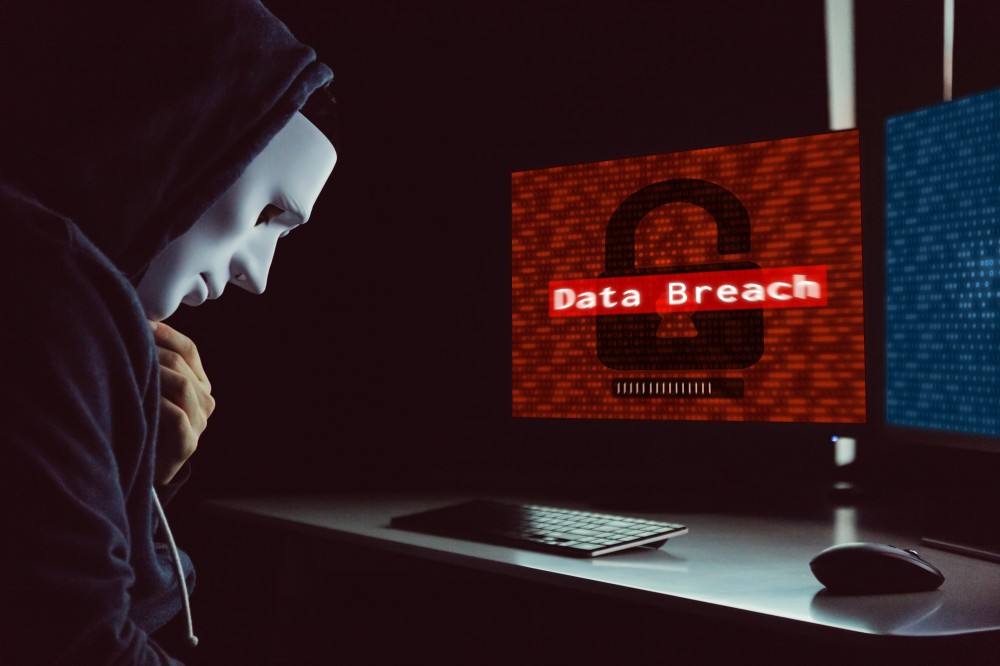In the current digital world, cybersecurity is an inevitable requirement. An attack on entity data can expose millions of people’s information. The business entity may face financial loss as a result of one single security breach. Additionally, it causes reputational damage, so the partners distrust the business in terms of data protection. Therefore, cybersecurity is the primary requirement of the business world to protect data from cybercriminals. Cyber security deters hackers, spammers, and cybercriminals and covers the identification of the potential risks and cybersecurity threats in a system.
What is Cybersecurity?
Cybersecurity involves safeguarding internet-connected devices, networks, and data from electronic attacks. Cybercriminals, hackers, and spammers may get unauthorized access to digital systems, which badly ruins confidentiality and integrity. To prevent such cyber challenges, businesses rely on advanced measures and technologies. Cybersecurity helps fight against cyber crimes, including phishing, identity theft, ransomware attacks, data breaches, and financial losses. Today’s experts are engaged in adapting cyber security measures to protect assets from computers to databases.
Effects of Cyber Attacks on Businesses
There are several bad effects of cyber attacks on businesses; let us explore a few.
Financial Loss
The financial threats that cyber attacks present are evident in the different industries of the economy. These attacks can cause significant monetary damages through several processes. The most frequent one is the direct theft of money or other important financial data when cybercriminals infiltrate banking systems or payment services. Also, there are costs that may be incurred to rectify the situation, for instance, a forensic audit to establish the degree of the breach and the process of rebuilding the affected systems.
In addition, there are possible legal and regulatory penalties when customer information is leaked, and the customer base and its revenues are damaged. The monetary losses due to cyber threats prove the need for effective cybersecurity and the constant search for threats for any company.
Want to enhance your security by adopting our proven cybersecurity best practices?
Contact Growth Hackers
Financial Risk
The cyberattack directly affects the financial status of the business. The business may face legal penalties for not complying with data protection. The damaged business has to immediately hire a cybersecurity expert to recover or replace damaged systems. Additionally, downtime affects the business’ overall revenue. The financial threats of cyber attacks are evident in the different types of industries and companies. These risks are realized in the following ways, beginning with the costs of protecting against the attack: The direct costs of the attack include the costs of acquiring and implementing the necessary technologies and personnel to detect and counter the threat.
Furthermore, the operations of businesses may be affected and this may lead to losses since the businesses will not be operating as they usually do hence affecting their revenues. Additionally, cyber threats lead to the loss of money, such as from bank accounts or cryptocurrencies, which influences liquidity and financial health. Also, regulatory fines and legal fees may build up if the attack falls foul of data protection legislation or contractual requirements to safeguard customers’ data. Besides, there are other economic consequences which include; high insurance costs and decreased investors’ confidence in the organization. Therefore, the management and minimization of financial risks related to cyber threats are essential components of contemporary business strategies for recovery and sustainability.
Data Breach
Hacking is a process that results in the leakage of sensitive information that affects organizations in many ways. The most common targets for the attackers are customers’ data, intellectual property or other confidential business data. A data breach can be achieved through activities such as phishing, malware, or by taking advantage of the loopholes in the software or network. Once it is compromised, this data can be sold on the dark web, or used for business identity theft and fraud. The losses that are incurred from a data breach go beyond the monetary losses to include reputational losses, customer trust, and legal and regulatory losses. Losses incurred by companies that have been victims of data breaches include the costs of investigating the breach, informing the affected parties, and offering credit monitoring services, as well as the costs of adopting measures that would ensure that such incidents do not happen again.
To avoid data breaches, it is essential to have strong security measures and educate employees about the potential threats, as well as constantly monitor the situation to respond to threats as soon as possible.
Operational Disruptions
The data loss badly affects the smooth business operations and bottom line. The system’s downtime also results in operational disruptions. The business undergoes time delays in delivering products, services, and payments. Cyber attacks lead to operational losses that affect business continuity and damage daily operations. Cybercriminals may use malware or ransomware that locks data or shuts down key applications, thus paralyzing the company’s operations. This disruption can lead to a delay in delivering products or services to the clients hence affecting client relations and satisfaction.
Reputation Damage
The cyberattack affects the company’s reputation, so the partner loses trust. The number of partners, clients, and investors leads to business downfall. Cyber attacks are capable of causing serious reputational losses to the business, and this may lead to loss of reputation among customers, partners, and other stakeholders. In the event of a cyber attack, when the data or information that is leaked is sensitive, or it is personal information of the stakeholders, then this causes the stakeholders to lose confidence in the company as it failed to protect their information. Such actions may lead to a loss of customers’ trust and hence they are likely to shift their loyalty to other competitors thus affecting the revenues and the market share. In addition, negative media coverage and public scrutiny that is likely to follow a cyber attack will compound the damage to the company’s reputation.
It takes time and money to regain trust and restore a company’s image, which requires public relations work, reporting about the incident, and proving the company’s readiness to improve the security of its IT systems. Consequently, protection against cyber threats is not only about the preservation of the company’s funds but also about the most valuable intangible asset – reputation and trust in the digital environment.
Protect your data—implement cybersecurity best practices now!
Preventive Measures to Mitigate Cyberattacks
A business entity must rely on professional preventive measures to avoid cyberattacks. Businesses must use advanced tools and resources so that cybercriminals do not affect their business data and operations. This will help to identify the potential risks associated with third parties and strengthen the system’s defenses.
Deploy Multi-Factor Authentication
In the current digital world, the number of companies working hybrid or remotely is increasing. So, the need for multi-factor authentication (MFA) is necessary as the business has to collaborate with companies from various locations and devices. Deploying MFA is a blanket to avoid risky factors within the business and its partners. The business must review logs or failed authentication attempts to indicate if there’s an account compromise within the organization.
Additionally, the business must restrict the unnecessary privileges of its own organization to identify who has access to networks and data. This helps to mitigate the high risks on time before facing serious consequences.
Control Internal Data and Networks
For a business, it is crucial to comprehend the environment in which it functions and segregate the different networks. This helps to identify significant business systems and apply necessary demands on network security to address risk issues within the firm. An organization should verify connections with other businesses, their MSPs (Managed Service Providers) system, and other strategic advisors and supplier networks. In place of conventional connections, VPNs or other forms of secure connection must be used to connect to MSP infrastructure, with all the traffic restricted to a single secure connection.
The organization must ask and ensure that the third-party vendor it is dealing with changes its administrative credentials for different customers. Check that the vendor does not use the same access credentials among different partners and clients. The same credentials can be used to breach the data of the business partners.
Onboard Trustworthy Vendors
Last but not least, the business ensures transparency for enhanced security of electronic devices, networks, and data. When the business has to onboard, another partner must check their security measures. Know Your Business is crucial in verifying that companies have secure networks and data policies. In KYB, applying for background checks reveals if the company has a record in cybercrime cases. If cyber attacks occur because of a lack of cyber security policies, they affect the operations, financing, and reputation of the other business partners.
For this reason, relying on Know Your Business verification is the best practice to ensure enhanced cybersecurity. The KYB checks identify the risk factors associated with the business in question that fall outside of the scope of the contract. The constant monitoring of the vendors helps businesses to manage and monitor third-party risks.
Final Words on Digital Business Security
In the evolving digital world, the cyber threats to businesses are increasing. Online businesses of every scale must focus on strong preventive measures to prevent cyber attacks. Advanced cybersecurity helps businesses to protect networks and data. The company that has enhanced cybersecurity policies has more tendency to grow. While establishing the business relationship, the company must rely on vendor due diligence. Evaluating the vendor’s cyber security measures helps businesses make informed decisions. Hence, it is essential to have comprehensive risk management to identify, protect against, and continually validate known cyber risks to ensure no gaps.
Growth Hackers is a leading brand building agency helping businesses from all over the world grow. There is no fluff with Growth Hackers. We help entrepreneurs and business owners secure their business with our cybersecurity best practices, increase their productivity, generate qualified leads, optimize their conversion rate, gather and analyze data analytics, acquire and retain users and increase sales. We go further than brand awareness and exposure. We make sure that the strategies we implement move the needle so your business grow, strive and succeed. If you too want your business to reach new heights, contact Growth Hackers today so we can discuss about your brand and create a custom growth plan for you. You’re just one click away to skyrocket your business.







